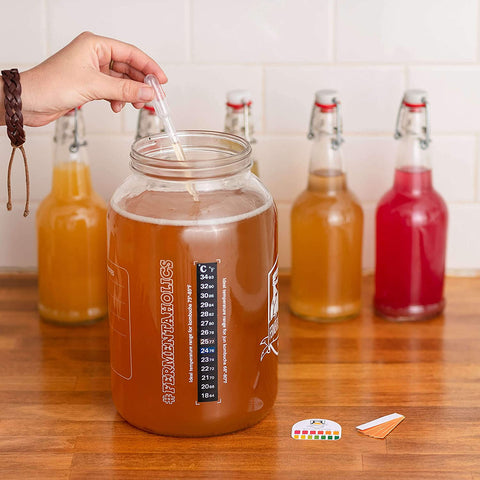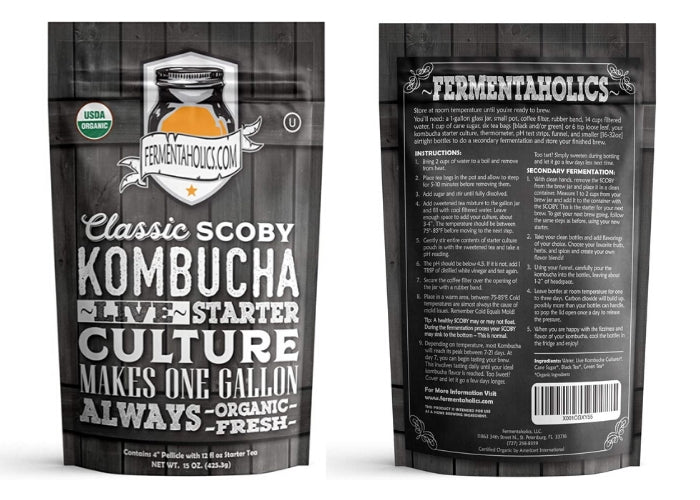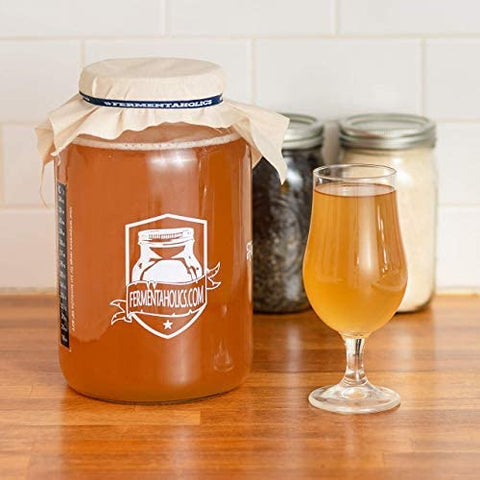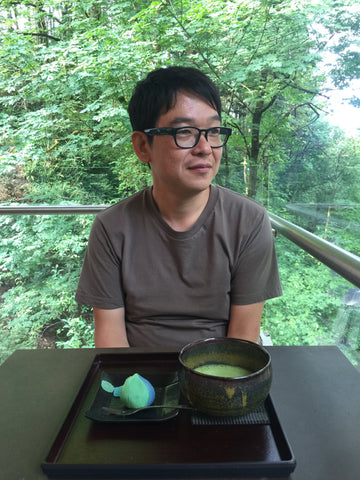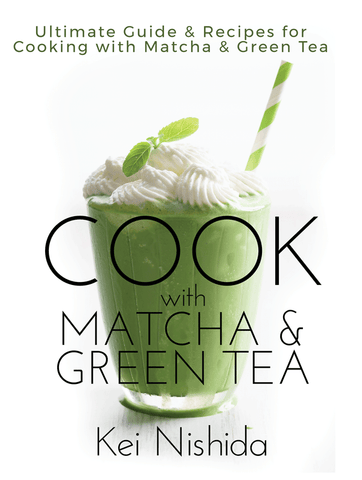How to make Kombucha with Japanese Green Tea

The historicity of Japanese green tea is rich in facts, stories, and intriguing developments. Some of you may be familiar with the introduction of green tea in Japan while others may be familiar with the development of Japanese green tea culture. The history of Japanese green tea reveals itself in the way we consume tea or the recipes we try. It helps shape our perception and overall experience of tea. In part, this article is a challenge with respect to your knowledge of tea. In another part, this article is a discussion of kombucha: Can I make kombucha from Japanese green tea? If so, how? But before we begin to outline the how-tos of kombucha, I want to review kombucha itself.
What is Kombucha? The Short Answer.
There is a short and longer answer to this question. In short, it is a slightly alcoholic, fermented, sweetened drink infused with black or green tea. You may also find various Kombucha drinks that include juices or spices or added fruit.
What is Kombucha? The Long Answer.
The long answer has two parts: The historical and chemical parts. Kombucha tea is an incredibly old tea that includes a complex arrangement of flavor profiles and notable health benefits. Let’s start with the history of this unique drink: There is research to suggest that people in China drank kombucha tea in 221 BC and that a doctor from Korea named Kombu in 414 BC had brought the drink or as the Koreans described it “The Divine Tsche” to Japan to cure the then Emperor. There is some debate as to where exactly it originated but the first clear reports come from Russia and the Ukraine in the late 1800s and eventually moving into Germany in the early 20th century. Its popularity grew throughout Europe until the outbreak of World War 2 which brought about various shortages. The drink began growing in popularity once again in the 1950s. Nowadays, you can find kombucha worldwide and is relatively common in many parts of the world. Homebrewing is supported by online and local recipes. On the commercial side, various companies offer not only the drink but the critical starting components including the symbiotic culture of bacteria and yeast (SCOBY), etc. If you’re interested in making your own kombucha, there’s more than enough support available to ensure you’re doing it right.
But what of its chemical makeup? Yes, it includes tea but there is much more to detail about kombucha. Kombucha is produced from a symbiotic growth of specific bacteria and yeast which is cultured in sugared tea. The symbiotic culture of bacteria and yeast (SCOBY) is unscientifically described or referred to as a “mushroom” or “mother”. It is tough to put an exact description on the bacteria – yeast combination because it varies widely but it remains the critical element in creating kombucha. This element in kombucha, turns your sweet tea into the tangy and distinct taste of kombucha. It looks somewhat odd, if not distasteful yet the SCOBY helps maintain a health kombucha drink by protecting it from outside bacteria.
Wait, isn’t Kombucha actually spelt Konbucha?
No. Kombucha is not konbucha. I’ve spent some time reviewing kombucha but let’s take a few minutes to understand konbucha. Konbu is referred to as a type of seaweed in Japanese with the added “cha” referring to tea. In many circles, you may also see it referred to as kocha kinoko or black tea mushroom. The idea behind konbucha is seaweed with hot water. You can find konbu online and cut up pieces to create the base of konbucha.
Is Kombucha Good for Me?
Let us quickly review some of the nutrients found in a common kombucha drink: organic acids, sugars such as sucrose and glucose and fructose, vitamins such as B1, B2, B6, and others including vitamin C. It also includes proteins and the living bacteria is said to be probiotic. If you have tried kombucha, you’ll likely guess that it includes alcohol that has been produced from the fermentation process which will be discussed below.
There are varying health benefits including antimicrobial support against various pathogens. This is largely due to the presence of organic acids and catechins. Kombucha may also support the liver as a means of preventing hepatotoxicity induced by outside pollutants. Kombucha is also known as an antioxidant drink. In fact, it has been observed to have higher antioxidant activity than standard green teas. This is likely due to the fermentation process. Animal students have shown that kombucha may help reduce heart disease risk and may also help manage type 2 diabetes. Human trials have not been reproduced but there is research to help piece together the long-held beliefs in the health benefits of kombucha.
The key to making healthy kombucha is to ensure that it's properly prepared. There are reports of toxic kombucha and it is possible to create something is ultimately more harmful to your system than otherwise.
I Want to Make Kombucha from Japanese Green Tea? How Can I?
Part of the beauty of kombucha is the how-tos. You need to first either purchase, obtain or create your own “mushroom” or “mother” or SCOBY.
If you do not have a SCOBY, you can make your own: First purchase a bottle of raw kombucha, then make 1 cup of Japanese green tea. Let the tea cool to room temperature. Then pour the raw kombucha and the cooled tea into a larger glass jar. Cover the jar and enjoy its secure, perhaps with a rubber band. Keeping the tea out of sunlight, keep the jar in a relatively warm spot (68-85 degrees) for about a week or so. You should start to see a clear film on top of the liquid. Do not worry, this is a smaller SCOBY that is forming. Essentially the SCOBY should get thicker and whiter as time goes on. Many recipes note that the SCOBY should be at least ¼ inch or thicker before its ready for brewing purposes. It may take several more weeks for this growth potential to be attained. If your SCOBY is not becoming thicker then you will have to start over. Once you are SCOBY is at the right thickness, you can keep the kombucha tea in the jar and the SCOBY to transfer to a new batch of Kombucha.
Is raw Kombucha Safe to Drink?
Raw kombucha is not pasteurized and contains at least part of the culture you need in creating your SCOBY. It is in fact safe to drink however doctors continue to recommend that pregnant patients avoid unpasteurized products, including kombucha. Yes, the labels on whether the kombucha is raw or not vary but a little bit of digging on reviewing the product should provide an answer.
I have a SCOBY, how do I make Kombucha?
For a half-gallon batch of kombucha you will need
- 1 tablespoon of loose tea or 4 tea bags
- ½ cup of sugar
- 6-7 cups of water
- 1 cup of starter tea or vinegar
Bring hot water and sugar together in a large enough glass jar. Stir the water and sugar together until the sugar dissolves.
Put the tea or tea bas in the stirred water, sugar. Cool the mixture to 68-85 degrees. The longer the tea is left in the liquid, the stronger the tea flavors will be. You can remove it after 10-15 minutes.
Proceed to remove the tea bags or strain the loose tea leaves.
From starter tea that you’ve either purchase or created above, you willl need to add this element at this point. If you have neither, please add distilled white vinegar as a substitute.
Now add the SCOBY.
Close the lid of the jar and ensure its secured.
You will now need to hide it from the sun, undisturbed for a week or more until you’ve reached the desired taste. The longer it sits and ferments, the more alcohol that is produced, and the less sweet it becomes.
Next, pour the kombucha off the top of the jar for drinking. You will want to keep the SCOBY and at least some tea for an additional batch.
Lastly, enjoy your kombucha!
Buy Japanese Green Tea Used Above
Related Articles You May Be Interested
Also in Japanese Green Tea Lovers in India
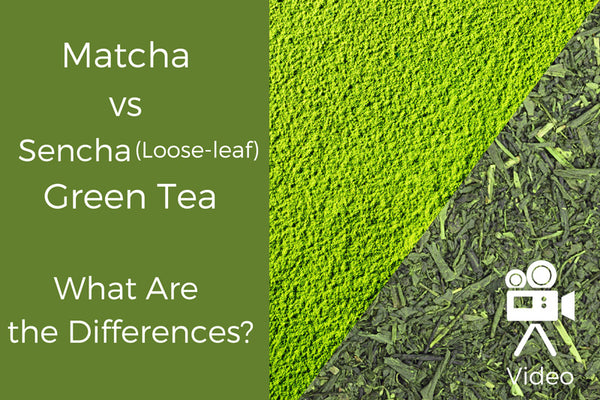
TYPES OF TEA: MATCHA VS SENCHA GREEN TEA: WHAT ARE THE DIFFERENCES?
When it comes to different types of tea, matcha and sencha green tea are two many people have questions about! Get answers in this post.
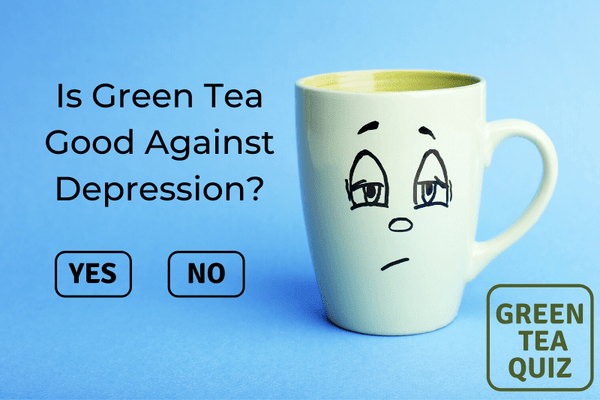
Is Green Tea Good Against Depression?
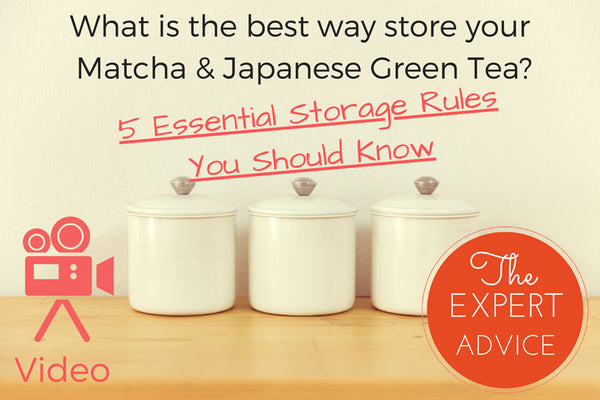
What is the best way to store your matcha & Japanese green tea?
5 Essential Storage Rules for Matcha and Japanese Green Tea
Read on to learn how to store matcha the proper way to ensure that you get the most out of this ancient elixir.



